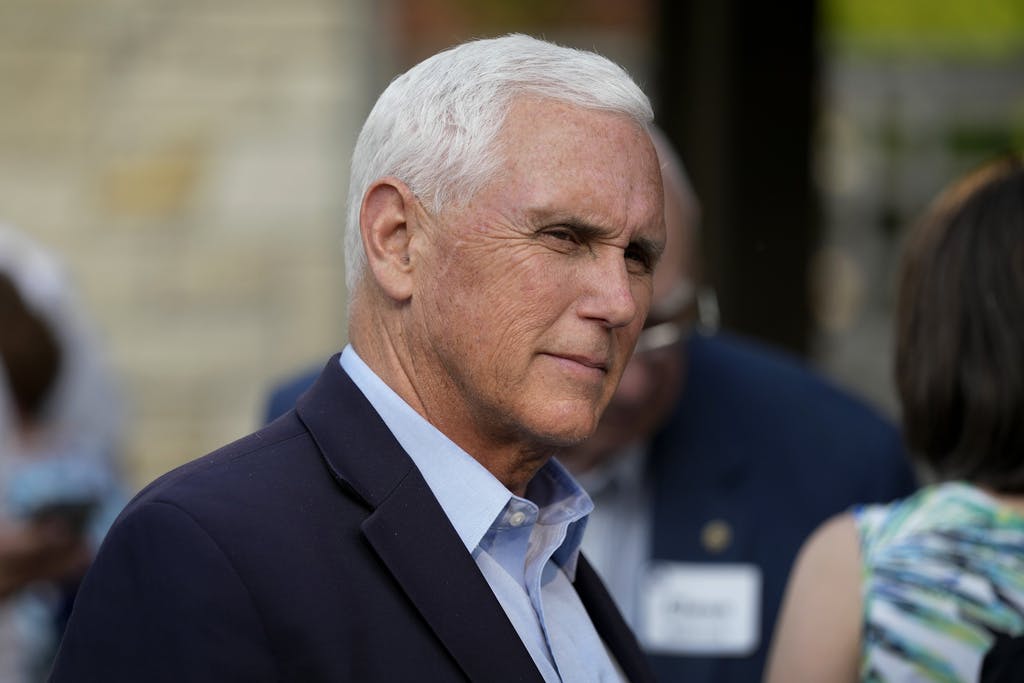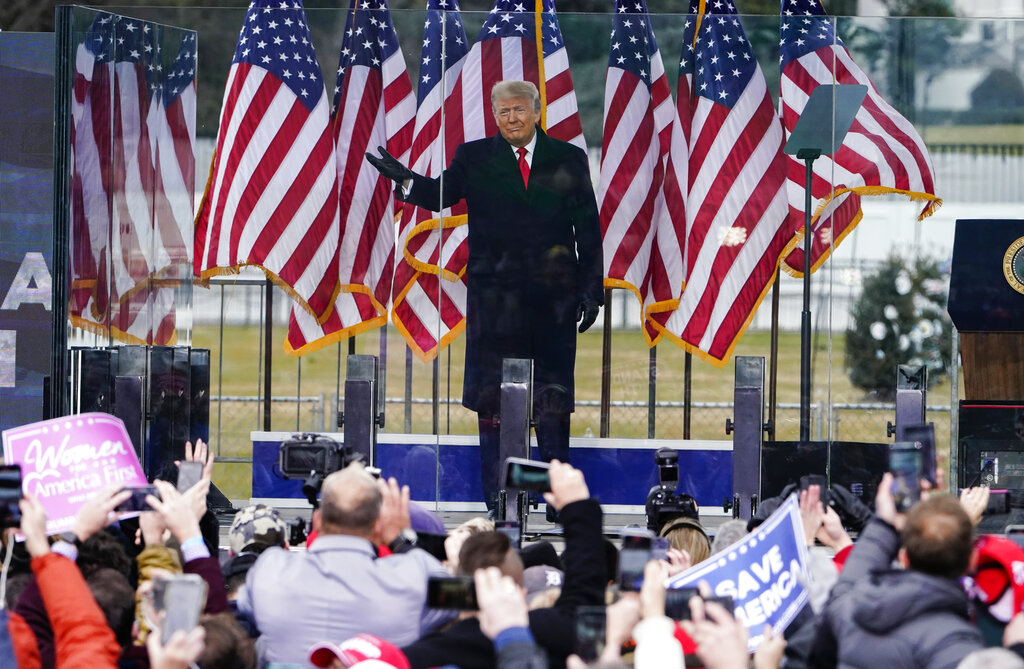Mike Pence’s Revenge? How the Former VP Could Help Jack Smith Convict Trump and Cost Him the Election
The vice president, who split with the 45th president after January 6, could now be crucial for a ‘guilty’ verdict.

Vice President Pence says he won’t be endorsing President Trump, but he could soon take the stand to testify about the 45th president’s alleged efforts to overturn the results of the 2020 election, when Trump unsuccessfully asked him to refuse to certify the vote.
Mr. Pence, who ran unsuccessfully against Trump for the Republican nomination this year, told Fox News in March, “It should come as no surprise that I will not be endorsing Donald Trump.” He added that the “issue of fealty to the Constitution is not a small matter,” and accused the former president of “walking away” from the national parchment.
The former vice president has long been a key figure in the criminal case, Trump v. United States, brought by Special Counsel Jack Smith for the events of January 6, 2021. The indictment is marbled with interactions between Trump and Mr. Pence, who was charged with certifying President Biden’s victory. Those colloquies are likely to be the subject of fierce litigation in the wake of the Supreme Court’s landmark immunity ruling.
The 6-to-3 decision, authored by Chief Justice Roberts, found that presidents are presumptively immune for their official acts, absolutely immune for acts within their “exclusive and preclusive” authority, and not immune for unofficial acts. The justices sent the case down to the district court judge, Tanya Chutkan, for hearings to determine which acts in Mr. Smith’s indictment fall in which category. That process begins next month, and it could include sworn testimony from Mr. Pence.
Mr. Pence, in his memoir “So Help Me God,” details some of what passed between the two men on that fateful day. Trump in his speech at Washington, D.C.’s Ellipse told the crowd with respect to the certification of the vote, “I hope Mike is going to do the right thing. I hope so. I hope so. Because if Mike Pence does the right thing, we win the election.”
The vice president had previously told the president: “We both took an oath to support and defend the Constitution,” and said he was going to certify the results. Some of those who stormed the Capitol chanted: “Hang Mike Pence.”
Could Mr. Pence help Mr. Smith convict Trump? The Supreme Court in Trump ruled that “allegations that Trump attempted to pressure the Vice President to take particular acts in connection with his role at the certification proceeding … involve official conduct, and Trump is at least presumptively immune from prosecution.” That means Mr. Smith has a high — though not insurmountable — bar to clear if he hopes to introduce the conversations between Mr. Pence and Trump into court.

The first step to doing so could be summoning Mr. Pence to testify in one of the mini trials regarding immunity that will unfold this fall before Judge Chutkan, following the high court’s command that all issues regarding presidential prerogatives with respect to prosecution be sorted out before a jury trial begins. If he does, it will not be the first time the erstwhile vice president has testified in connection to the criminal case against the 45th president.
Mr. Pence spoke for more than five hours with the District of Columbia grand jury that handed up charges against Trump, at Mr. Smith’s bidding. Initially, Mr. Pence resisted testifying. His constitutional challenge to his subpoena was on the basis of the Constitution’s Speech or Debate Clause, which ordains that lawmakers “shall in all Cases … be privileged from Arrest during their Attendance at the Session of their respective Houses, and in going to and returning from the same; and for any Speech or Debate in either House, they shall not be questioned in any other Place.”
This privilege, rooted in ancient protections secured by Parliament, is absolute as long as a legitimate legislative purpose is invoked. Mr. Pence cited the Constitution’s decree that “The Vice President of the United States shall be President of the Senate” to claim this protection. No such argument had ever been made before, but a judge found that certain of Mr. Pence’s conversations with Trump were protected, though others were not. Mr. Pence declined to appeal the judge’s ruling and testified.
That ruling is under seal, so the circumference of the privilege is not known with precision. Any appearance of Mr. Pence before Judge Chutkan would likely require Mr. Smith to navigate both presidential immunity and Speech or Debate privilege. The special counsel could, though, consider the juice as worth the squeeze — he asserts that Mr. Pence’s role was “foundational to the United States’ democratic process, and until 2021, had operated in a peaceful and orderly manner for more than 130 years.”
It now falls to Judge Chutkan to determine, in Chief Justice Roberts’s words, “whether a prosecution involving Trump’s alleged attempts to influence the Vice President’s oversight of the certification proceeding would pose any dangers of intrusion on the authority and functions of the Executive Branch.” Meaning that once again Mr. Pence finds himself at the center of a constitutional conundrum not of his own making.

